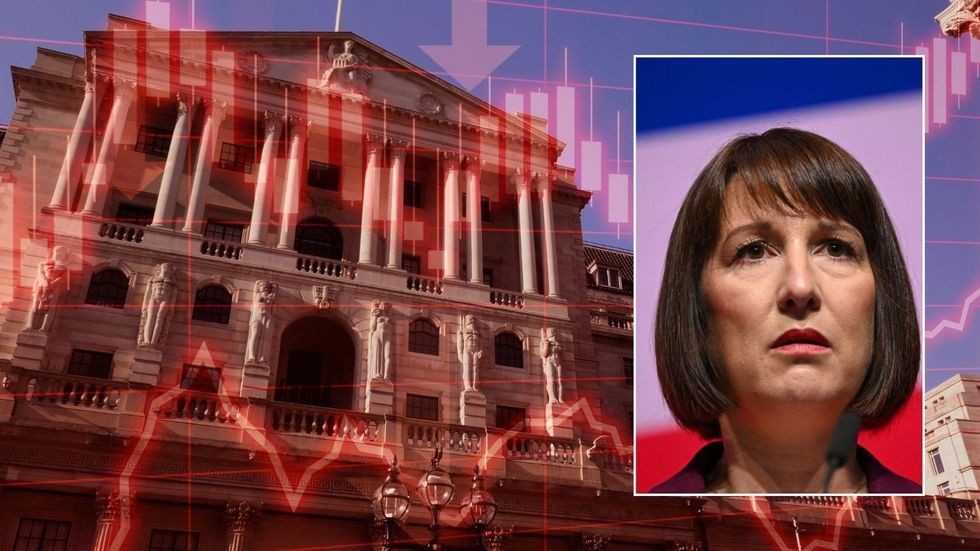Chancellor Rachel Reeves's recent Budget decisions have sparked growing concerns about a potential UK recession, as economists and business leaders warn about the impact of her £40billion tax hikes.
The warnings come as private companies are reeling in their investments and economic indicators show stagnation in the British economy.
Major retailers have publicly warned that Budget measures, particularly the increase in employers' National Insurance contributions, will lead to inevitable job losses and higher prices.
Paul Dales, chief UK economist at Capital Economics, has argued that there is now a real risk of recession, amid mounting criticism of Reeves's economic strategy just four months into her chancellorship.
"I am now more worried that economic growth will be weaker than our forecasts. And at this stage, it would no longer be a surprise if the economy contracted in Q4," said Paul Dales of Capital Economics.
He added that while any recession would likely be "short and small", the impact of higher interest rates continues to affect the economy.
Do you have a money story you’d like to share? Get in touch by emailing money@gbnews.uk.
Reeves's Budget could trigger a recession, economists warn
GETTY
Chris Williamson, chief business economist at S&P Global Market Intelligence, noted that companies are giving a "clear 'thumbs down' to the policies announced in the Budget, especially the planned increase in employers' National Insurance contributions."
Rob Wood from Pantheon Macroeconomics echoed these concerns, stating: "UK growth certainly slowed over the summer and we have had a couple of disappointing months. We were close to stalling in October."
The Budget's controversial measures include a £40billion tax increase aimed at stabilising the economy, but business leaders warn this could have the opposite effect.
A major point of contention is the increase in employers' National Insurance rates, which major UK retailers claim will force job cuts and price increases.
The changes have also angered the farming community, with thousands of farmers protesting on Whitehall over new inheritance tax rules affecting agricultural land.
Despite mounting criticism, Labour sources indicate Reeves remains committed to her approach, with one stating: "Rachel promised at the election she would be an iron chancellor that would put the economy back on track - and that's exactly what she is doing."
Recent economic data has heightened these concerns, with figures showing the UK economy grew by just 0.1 per cent between July and September, below expert predictions of 0.2 per cent.
The Purchasing Managers' Index, which measures the health of manufacturing, services and construction sectors, indicates the UK economy is stagnating.
Some Labour MPs have privately expressed concern that the Budget hasn't delivered on the party's promise of boosting GDP growth. Responding to the growth concerns, Reeves acknowledged dissatisfaction with current economic figures.
Reeves's policy proposals
PA
"Am I satisfied with the numbers published today? Of course not. I want growth to be stronger, to come sooner, and also to be felt by families right across the country," she said.
The Chancellor pointed to reforms announced in her Mansion House speech, including significant changes to the pension system.
She highlighted plans to "unlock long-term patient capital, up to £80billion to help invest in small businesses and scale up businesses and in the infrastructure needs".
Despite these assurances, Treasury critics warn that its short-term approach could restrict long-term growth potential and infrastructure investment.

 By GB News (Politics) | Created at 2024-11-23 15:00:55 | Updated at 2024-11-23 17:58:10
2 hours ago
By GB News (Politics) | Created at 2024-11-23 15:00:55 | Updated at 2024-11-23 17:58:10
2 hours ago










